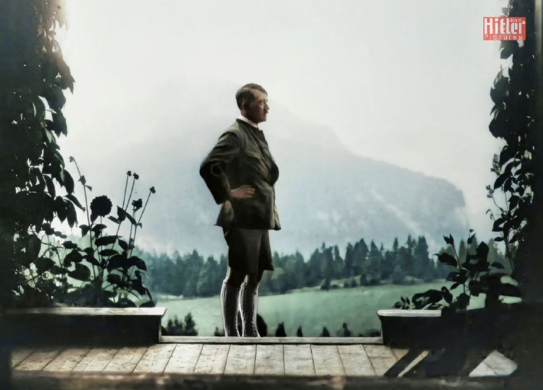Despite the bravado, Hitler trod very carefully. Shortly after his release, Hitler had two meetings with the Bavarian minister president, Heinrich Held, at which he assured him that he would not attempt another putsch. He toned down some of the rhetoric in Mein Kampf, the second volume of which he was writing in the calm of his mountain retreat at Berchtesgaden, the use of which had been given to him by a well-wisher.
Hitler also moved to sort out his national status, which acquired renewed importance after the speaking ban. In early April 1925, he wrote to the authorities in Linz requesting his ‘release from Austrian citizenship’. Hitler also had a long discussion with the Austrian consul in Munich and expressed his desire to surrender his nationality. On 30 April 19 25, the Austrian authorities finally stripped him of the citizenship he had never accepted. This did not mean that Hitler had established his right to stay in Germany beyond all doubt—he was now formally ‘stateless’—but he had at least ensured that it would be more difficult to deport him somewhere else. The threat of removal, however, remained, and the Bavarian authorities reminded him of it from time to time…
Hitler avoided confrontation, partly in order to concentrate on the completion of Mein Kampf. ‘Not a word from Hitler,’ Goebbels noted right at the end of 1924, ‘Oh this sly fox with the political instinct.’ A fortnight later, he asked anxiously, ‘What will Hitler do? That is the anxious question every day. Hopefully he will not go over to the camp of reaction.’ Hitler’s reticence annoyed some of the rank and file, who complained that it would be better for him to sort out the ‘problems’ in the movement than to work on a ‘high political work’. The Bavarian police, which kept a close eye on Hitler after his release, also reported that he seemed to be absorbed by Mein Kampf, which was concerned ‘exclusively with Marxism and Jewry’. This was, as we shall see, by no means a completely accurate summary…
Hitler gave thirty-eight speeches in 1925, and fifty-two in the following year. This gave him limited traction, however, partly because the numbers attending were substantially lower than during his heyday in 1923, and partly because he was still banned from appearing in public in much of Germany. Hitler was thus forced to speak to closed party meetings, in salons, or at private events. Nor could he put too much reliance on his personal magnetism…
Hitler would have to work with the people he had rather than the people he would like to have had. He knew that the party needed to transcend his own person. Personal loyalty was not enough; he needed party cadres to obey not just him but their immediate superiors. The Führer principle was thus extended beyond the Fuhrer himself. More talented and trained speakers were needed, so that the entire strain of communicating the message did not fall on him and a few others. ‘We need speaker schools,’ he announced in March 1925, ‘because to this day this mass movement has only 10-12 good speakers.’ In other words, Hitler was learning not to hog his charisma, but to spread it around. His speeches and instructions increasingly referred not just to the Führer in the singular, but to the plural Führers upon whom the leadership of the movement depended.
Central to this was the establishment of a proper party bureaucracy. Here the Social Democrats explicitly served as a model. Hitler spoke grudgingly of the SPD as a party ‘organized like the SA’. Despite shortage of funds, the NSDAP moved to new premises in the Schellingstrasse in Munich in the summer of 1925, and Hitler signalled his plan to build a dedicated ‘Party Headquarters’ in Munich paid for by the membership…
Hitler also resurrected the Sturmabteilungen, not as a paramilitary formation, as it had developed in the months preceding the Putsch, but as an organization dedicated to ‘strengthening of the bodies of our youth, bringing them up on discipline and dedication to the common great ideal [and] training in the marshalling and reconnaissance service of the movement’.There should be no weapons, either carried openly or stored in depots. Anybody who violated that rule was to be expelled. Hitler’s concern here was to avoid being dragged into illegality by armed hotheads. The immediate effect of this ruling was to precipitate a breach with Röhm, for whom the paramilitary aspects of the SA remained central. He resigned and eventually emigrated to South America . That same month Hitler created the ‘Protective Squadron’ soon known simply as the SS, a personal protection squad whose first leader, Josef Berchtold, placed particular stress on ideological purity. In a critical assertion of authority, Hitler had established a monopoly of violence within the movement.
